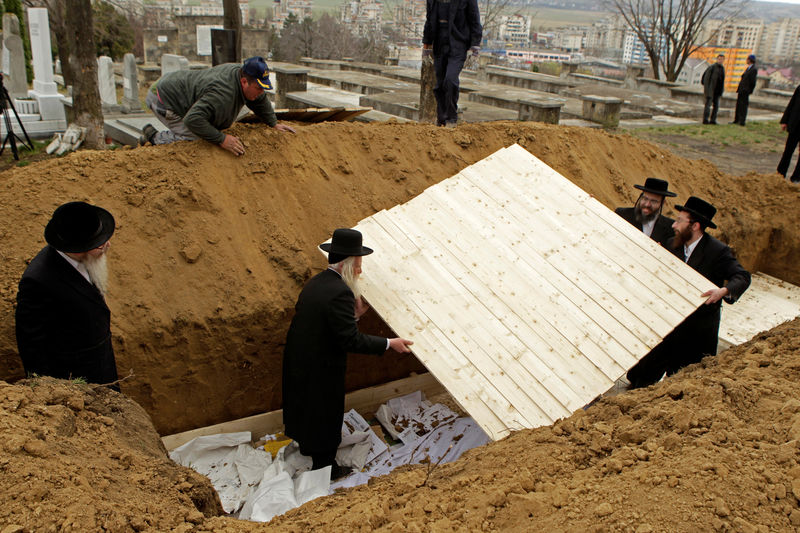BUCHAREST (Reuters) - Archaeologists have unearthed "many human remains" in northeast Romania near an area where in 2010 they discovered a mass grave for more than 100 Jews killed by Romanian troops during World War Two, military prosecutors said on Tuesday.
The archaeologists, who are supported by the Elie Wiesel Institute and have been scouring the area since 2010 for possible other mass graves, also discovered a grenade and an 82 mm caliber gun mortar at the site.
"Notified by the Elie Wiesel Institute... we launched a criminal probe regarding the June 29 unearthing of many human remains during archaeological research work in the proximity of an area where a mass grave was found in 2010," the prosecutors said in a statement.
The site has been cordoned off but no further details were immediately available.
The mass grave discovered in 2010 was located in a forested area called Vulturi, some 400 km (250 miles) north of Bucharest, through which Romanian and German troops advanced at the start of their invasion of the Soviet Union in 1941.
An international commission headed by Nobel laureate Wiesel had concluded in 2004 that between 280,000 and 380,000 Romanian and Ukrainian Jews were killed in Romania and areas it controlled during World War Two as an ally of Nazi Germany.
Many of them were slaughtered in pogroms such as the 1941 killing of almost 15,000 Jews in and around the city of Iasi, or died in labor camps, or on death trains.
Wiesel, an American activist, writer and Holocaust survivor, was born in Romania in 1928. His mother and one of his sisters were killed at Auschwitz and his father at Buchenwald. Wiesel won the Nobel Peace Prize in 1986 for his human rights work and died in 2016.
Vulturi was the second place in Romania where a mass grave has been discovered since the war. In 1945, 311 bodies from three mass graves were exhumed in Stanca Roznovanu in Iasi.
Romania has only recently started to come to terms with its role in the extermination of Jews, admitting for the first time in 2003 that it had taken part.
Romania switched sides in the war in 1944 as the Soviet Red Army swept down into the Balkans. The Communist regime which then took power did little to uncover the killings.

Romania was home to 750,000 Jews before the war, but only 8,000-10,000 remain today.